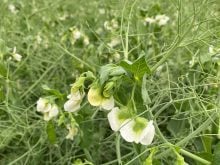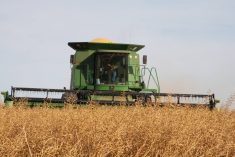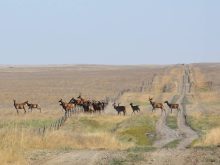Saskatchewan has new weed control legislation but it won’t take effect until after this growing season.
The Weed Control Act was passed recently to replace the 100-year-old Noxious Weed Act. However, it won’t be proclaimed until the fall.
Provincial weed specialist Clark Brenzil said over the summer officials will determine which weeds fall into three categories established in the new legislation.
Prohibited weeds are either rare or not yet found in Saskatchewan and would be on the list so that they are eradicated when they are seen.
Read Also

Crop quality looks good this year across Prairies
Crop quality looks real good this year, with the exception of durum.
Noxious weeds are already generally established in local areas but not necessarily provincewide.
“We want to take those areas and put a boundary around them,” Brenzil said. “Reasonably intensive eradication efforts on the edge” would follow to reduce the negative impact of the weeds and keep them from spreading.
Nuisance weeds are widespread, often spread by wind and can cause economic losses.
“They move very easily from one parcel of land to another parcel of land, and they move en masse.”
Brenzil said this category would include dandelions, for example, and may include some native species that have become problems.
“In the case of a lot of native plants, that means they’re in a niche that has been vacated by everything else,” he said.
For example, foxtail barley is a native plant that in some areas has become a problem. Brenzil said only a few native species are being considered for this list.
Agriculture minister Bob Bjornerud said weeds are among the largest causes of crop yield loss in Saskatchewan.
“The costs are estimated to be around $1.36 billion annually in control costs, which is in addition to the yield losses experienced by producers even when control measures are taken,” he said during committee debate on the act.
“This amount does not include the cost of damage to hay land, pasture, wildlife habitat and infrastructure done by invasive weeds.”
Saskatchewan’s current weed legislation focuses on agricultural weeds and was last amended in 1984.
The new law will also include weeds and invasive plants on non-agricultural land, along with aquatic weeds.
Fines for failing to comply with the act or to follow the order of a weed inspector will be rising from a maximum of $500 to a maximum of $5,000. Municipalities have said that the existing fine is not a deterrent.
Most offences occur when landowners fail to comply with orders under the act and work with the municipal weed inspector, as opposed to what is actually happening on the land, Brenzil said.
“Most of the time I would suggest that they get good co-operation,” he said.
Inspectors should have more time to deal with aggressive weed problems rather than everyday weeds under the new system, he added.
The new legislation also includes an appeal process.















